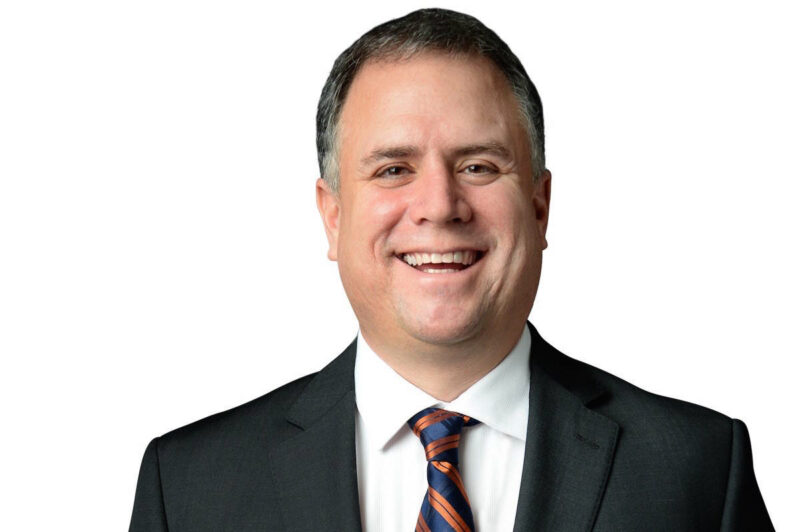Salmon farmers “care deeply about our coastal waters” says NDP MP
Vancouver Island MP Gord Johns also hails BC salmon farmers’ commitment to coastal communities at parliamentary inquiry
By Fabian Dawson
SeaWestNews
Vancouver Island MP Gord Johns told a parliamentary inquiry yesterday that BC’s salmon farmers and the people who work for them care deeply about the coastal waters where they operate.
Johns, the NDP critic for fisheries and oceans also hailed the BC salmon aquaculture industry’s Corporate Social Responsibility (CSR) commitment to the coastal communities.
In a rare departure from his attacks on the ocean salmon farmers, Johns said: “I know they care deeply about our coastal waters…We don’t talk enough about that.”
The MP for Courtenay-Alberni singled out Creative Salmon, which raises Pacific Chinook (King) salmon in the waters of Clayoquot Sound on the west coast of Vancouver Island.
“Companies like Creative Salmon in my riding are huge contributors to our community and I can’t say enough about that on the CSR side,” Johns told the 13th sitting of The Standing Committee on Fisheries and Oceans, which is conducting meetings on the State of the Pacific Salmon .
Salmon farmers in British Columbia last month announced that they are ready to directly invest $1.4 billion in innovation, new technology and infrastructure. The investments through 2050 would create almost 10,000 new jobs and add a cumulative $44 billion in new economic activity to propel Canada’s Blue Economy.
In 2019, BC Salmon Farmers donated over $2.2 million to support local rural coastal communities. As the COVID-19 pandemic put pressure on Food Banks, the salmon farmers donate an equivalent of 272,000 meals last Spring.
Johns also agreed with John Paul Fraser, the executive director of the BC Salmon Farmers Association (BCSFA) that Canada could do with a “champion” in government to boost the nation’s aquaculture industry and products.
The MP wanted to know if the BCSFA agreed with a recommendation by the Cohen Commission of Inquiry into the Decline of Sockeye Salmon in the Fraser River, that the Department of Fisheries and Oceans (DFO) should not oversee the promotion of aquaculture products.
Fraser said the salmon farming industry on both coasts regard DFO as a “quality regulator” but has been calling for a “champion”, like those in all the other food production sectors across Canada.
“We produce food, we grow food so we are technically not a fishery…so I think that it will be useful,” said Fraser.
“I think it would be too,” said Johns, who had to be corrected on his assertion that the Liberal government has pledged to remove all open net fish farms in BC by 2025 to land-based close containment facilities.
Canada’s Minister of Fisheries, Bernadette Jordan has already made it clear that 2025 is the date to “come up with a plan” and is not about getting all open-net salmon farms out of the ocean in five years.
The future of salmon farming in BC could involve a range of technologies including hybrid grow-out operations, closed and semi-closed containment systems in the ocean together with an area-based management approach, said Terry Beech, Parliamentary Secretary to the Minister of Fisheries last month.
Yesterday’s hearing was held as consultations are underway on the renewal of fish farm licences in the Discovery Islands. Most of the juvenile Sockeye that head to sea from the Fraser River travel through the waters around Discovery Islands where about 18 salmon farms operate.
The consultations have been fired up by the rhetoric of anti-fish farm activists, who have refused to believe any science that is contrary to their stance that fish farms are responsible for the decline of wild stocks in British Columbia.
That includes the nine recent scientific studies generated through the Canadian Science Advisory Secretariat (CSAS) peer-review process that found farmed salmon pose minimal risks to migrating wild stocks around the Discovery Islands.
Ken Hardie, who represents the riding of Fleetwood-Port Kells told the hearing that the scientific studies “didn’t necessarily pass everybody’s sniff test.”
He wanted to know about the process involved and if the salmon farmers funded any party of the study, echoing a baseless claim by the activists.
Fraser said salmon farmers did not fund the studies and that they were conducted by the Canadian Science Advisory Secretariat (CSAS).
SeaWestNews had earlier reported that for the nine risk assessments, the sources included both international and Canadian experts – including First Nations, ENGOs, academic and aquaculture industry experts – from a wide variety of disciplines.
The conclusions were generated through the Canadian Science Advisory Secretariat (CSAS) peer-review process and represented the consensus of the scientific advice of the participants.
Hardie also wanted to know why sea lice – a naturally occurring parasite – was not part of the study, which some activists have been falsely claiming caused a record number of sea lice infestations in BC during the recent salmon outmigration period.
Studies have shown that, in B.C. regardless of the presence or absence of salmon farms, there is wide variability in sea lice prevalence in coastal locations. Research over the past decade shows lice levels are significantly linked with ocean conditions and variations in wild hosts.
The Department of Fisheries and Oceans has said that, other than two minor infractions by salmon farmers that had virtually no impact on wild stocks, sea lice in BC during the 2020 outmigration have been controlled.
(Facebook image of NDP MP Gord Johns)

